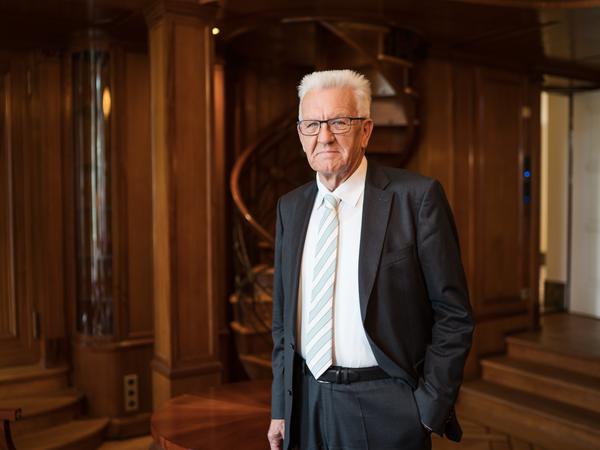Baden-Württemberg’s Prime Minister Winfried Kretschmann (Greens) sees the economic security of the Federal Republic in danger. “2023 is the tipping point for German prosperity,” he told the Tagesspiegel. The Green politician warned that there was no more time to lose. “We need to get into a decade of investment for the transformation to succeed.”
To do this, the “over-bureaucratization” of business and society must also be tackled, which is now a real problem. “We have to take up this fight so that the economy does not experience a locational disadvantage and innovations advance quickly.”
Lower Saxony’s Prime Minister Stephan Weil (SPD) is also concerned about the economic situation. “The energy-intensive industry in Germany is in a worrying situation,” he told the Tagesspiegel. This is especially true for the chemical industry.
The energy-intensive industry is in a worrying situation.
Stephan Weil (SPD), Prime Minister of Lower Saxony
“An industry like this needs competitive conditions – otherwise there is a real risk of companies and production moving away. That’s why we have to tackle the energy prices for such companies,” emphasized the Prime Minister.
Citizens and less energy-intensive companies are helped by the electricity and gas price brake. Industry must be guaranteed an electricity price of no more than 7 cents per kilowatt hour, even beyond 2024, demanded Weil.

Kretschmann expects that the everyday costs for the citizens will remain high this year: “When energy becomes more expensive, life becomes more expensive. So we will have to spend more money again on the important things in life – good nutrition, a warm apartment, mobility,” he said. “Our material wealth will shift.”
Federal Finance Minister Christian Lindner (FDP) also assumes that energy prices in Germany will remain high in the long term. “It will be a new normal,” he said the “picture on sunday”. The gas obtained via the liquid gas terminals is more expensive than the Russian pipeline gas for logistical reasons alone. “The price level remains higher, but without ruinous peaks,” said the finance minister. For 2023, the federal government is assuming a slightly declining inflation rate of seven percent.
According to Kretschmann, the rules of the debt brake do not need to be relaxed. “We achieve climate protection through private capital,” he said. It is not the state that builds wind turbines, but private investors. “We have to create the conditions for capital to be invested in these areas,” Kretschmann continued. He expects that this will soon be much better than in the past.
“We are now in the process of overcoming the Altmaier dent,” he said, referring to the policies of former Economics Minister Peter Altmaier (CDU). His successor Robert Habeck (Greens) released the brakes on the expansion of wind power. “We will soon experience the Habeck curve, and it’s going up,” said Kretschmann.
You can read the whole interview with Winfried Kretschmann here at Tagesspiegel Plus.
To home page
